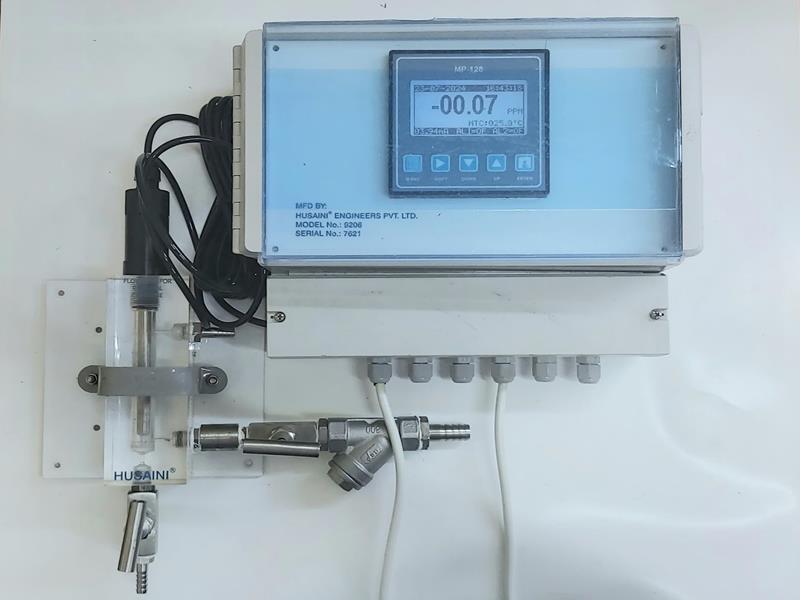Residual Chlorine Analyzer

Residual Chlorine Analyzer
Chlorination is one of the most widely used methods for water treatment. It removes metallic ions, eliminates biological contaminants, and prevents the regrowth of bacteria and other microorganisms. However, precise chlorine dosage is critical: excessive chlorine is wasteful, imparts an unpleasant taste and odour, and violates regulatory norms.
The Residual Chlorine Analyzer from Husaini® Engineers is an essential tool for measuring and regulating chlorine levels in potable water, swimming pools, and industrial water systems of any water treatment system. It combines precision, reliability, and ease of use to maintain water quality and compliance. Whether monitoring portable water supplies or ensuring safe swimming pool conditions, the analyzer delivers consistent results, safeguarding both public health and operational efficiency.
The Residual Chlorine Analyzer from Husaini® provides precise, continuous monitoring of chlorine levels in water, ensuring safety and regulatory compliance.
Ideal for water treatment and various industrial applications, this analyzer supports real-time water quality management.
Key Features of the Residual Chlorine Analyzer
- Continuous On-Line Monitoring: Provides real-time, accurate measurement of residual chlorine levels without interruption.
- No Moving Parts, No Reagents: Designed for hassle-free operation, minimizing maintenance requirements.
- User-Friendly Interface: An intuitive menu with programmable functions simplifies operation and customization.
- Easy Maintenance: The sensor section is accessible for quick and efficient cleaning or replacement.
- Advanced Communication Options: Equipped with Modbus RS 485 for seamless integration into industrial systems.
Importance of Residual Chlorine Monitoring
- Water Quality Compliance: Ensures compliance with guidelines that regulate chlorine levels.
- Portable Water: Must contain 0.1 to 0.3 mg/L of free chlorine post-treatment, with allowance for up to 0.5 mg/L if required.
- Swimming Pools: Require 0.3 to 0.5 mg/L of free chlorine across all areas.
- Optimal Chlorination: Prevents under or over-chlorination, ensuring effective disinfection without wasting resources or affecting water’s taste and odour.
- Continuous Safety: Provides a constant stream of chlorine measurements to maintain consistent water safety standards.
Advantages of Residual Chlorine Analyzer
- Precise Monitoring: Enhances efficiency in chlorination processes, reducing waste.
- Improved Safety: Ensures water is disinfected without exceeding regulatory limits.
- Cost-Effective Operation: Minimal maintenance and reagent-free design lower operational costs.
- Versatile Applications: Ideal for municipal water supplies, swimming pools, and industrial processes.
Installation Guidelines
- Components: Includes the analyzer instrument, flow cell, sensor, and water inlet with a drainage facility.
- Positioning: Flow-cell must be installed near the monitor for accurate readings. The standard cable length is 3 meters, but extensions can be added if necessary.
- Sample Water Connection: Use flexible PVC hoses for inlet water; avoid copper pipes as they obscure air bubbles.
- Pressure Requirements: Maintain an inlet pressure of 0.15 to 0.5 Kg/cm² with a constant flow of 5 lpm. Use a pressure-reducing valve or pump where pressure fluctuations occur.
- Signal Cable Placement: Signal cables must be routed away from the main power supply cables to prevent electrical interference.

